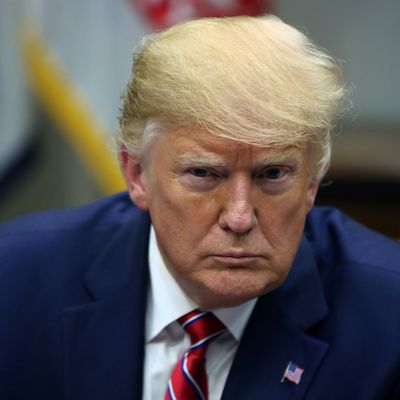
If you’re worried about President Trump issuing a plenary get-out-of-jail-free card via a pardon from federal crimes, you’ll be pleased by a 7-2 Supreme Court decision today that left in place a doctrine that allows states to prosecute malefactors under their own laws, even if the same offenses have already been dealt with in federal court. Thus the Court passed up an opportunity to apply the constitutional ban on “double jeopardy” (multiple prosecutions for the same crime) to “dual sovereignty” situations. The New York Times’ Adam Liptak explains:
In a decision that could affect associates of President Trump accused of wrongdoing and hoping for pardons, the Supreme Court ruled on Monday that criminal defendants may be prosecuted for the same offenses in both federal and state court. Since Mr. Trump’s pardon power extends only to federal crimes, the ruling leaves people he pardons subject to state prosecutions …
Writing for the majority, Justice Samuel A. Alito Jr. said there was no good reason to overrule 170 years of precedents allowing separate prosecutions.
The Constitution’s double jeopardy clause generally forbids subsequent prosecutions. But the Supreme Court has made one exception. Saying that the federal government and the states are independent sovereigns, the court has allowed separate prosecutions of the same conduct in state and federal courts.
Alito compared the federal government and the states to the United States and foreign governments for purposes of defending the “dual sovereignty” exception:
“Imagine, for example,” Justice Alito wrote, “that a U.S. national has been murdered in another country.” Both nations, he wrote, would have an interest in prosecuting the murderer.
“The murder of a U.S. national is an offense to the United States as much as it is to the country where the murder occurred and to which the victim is a stranger,” he wrote. “That is why the killing of an American abroad is a federal offense that can be prosecuted in our courts, and why customary international law allows this exercise of jurisdiction.”
Justice Ruth Bader Ginsburg, who called for a review of the “dual sovereignty” exception, dissented, as did Justice Neil Gorsuch, who said it unjustifiably undermined the “fundamental fairness” of the double-jeopardy prohibition.
It is important to understand, however, that the decision simply denied there is any federal constitutional bar to state prosecutions in “dual sovereignty” cases. Some states have laws restricting their own ability to prosecute in such cases, including those involved in cases touched on by the Mueller investigation, as Politico notes:
Fordham University law professor Jed Shugerman told POLITICO that the Gamble decision will have “no real impact on Trump cases.” Manafort is still facing state prosecutions in New York and Virginia, which have their own jeopardy rules, he noted. And former national security adviser Michael Flynn’s guilty plea to one count of making false statements to the FBI was limited to federal law, Shugerman said. The same appears true of Roger Stone’s prosecution on false statement and witness tampering charges, he added.
So while SCOTUS denied the chance to pave the way for more thoroughgoing presidential pardons, the implications will have to be considered on a case-by-case basis.






























